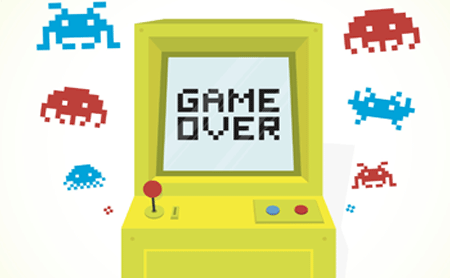Level up or it's game over with your millennial clients
Dr. Ernie Ward has been paying close attention to the younger generation of pet owners for years. Now he has a few cheat codes (remember those?) to help veterinarians out when it comes to dealing with Gen Y.

shutterstock/dmitriyloEditors' Note: This is part one of two-part series.
Love Dr. Ward's take on young adult pet owners? Or are you sick of the millennial hate? Remember your personal high-score from Space Invaders? Get your two cents in and contribute on the topic in the comments below or email us at ve@advanstar.com
Want more on the new generation of veterinary clients? Check this out.
I blame it on video games.
1978 marked the first blitz of arcade video gaming when Space Invaders conquered coins worldwide. I was there with all my buddies. Over the next eight years, I would spend countless hours huddled around screens in dimly lit arcades annihilating aliens and enemies, trash-talking my pals while trashing my index finger, and journeying toward adulthood together. Looking back, those times were less about leveling up and more about growing up. In my opinion, those times are gone.
To the millennials themselves: Ugh or shrug?
According to a recent dvm360 survey, 20 percent of veterinary team members are made of millennials-and only 9 percent of veterinarians. If you're a part of those numbers, do you agree or disagree with Dr. Ward's findings? How much of this generational talk feels right to you? How much feels like over-generalizing what older generations think of Gen Y? Should we stop the shaming (watch a video on it here) or just roll our eyes and continue nodding and smiling?
Today, young adults have played more video games growing up than my generation dreamed possible. The Millennial Generation, born from 1981 to around 2000, have had experiences far different from my tribal arcade adventures with my mates.
From a very early age, children born after 1981 were likely parked by their parents for hours each day in front of instructional videos, educational video games and academic TV shows. I think it's this background that leads them to interact with pets and veterinarians differently than previous generations. Much like the aliens from my past arcade games, the millennial pet owners are invading, and you'd better learn to play their way or your practice will be game over.
Strategize a plan of attack
I've been working to better understand millennial pet owners for the past five years. Why does their generation readily accept a complete stranger's online review when selecting a service or product? Why do they prefer texting a doctor over visiting or even speaking on the phone? Why are millennials willing to consult with non-veterinarians regarding their pet's health? I kept returning to video games.
What I first wanted to find out is what makes millennials different and how these differences affect veterinarians. It starts with who-or what-millennials trust and why. The veterinary profession has been, is and will always be built on trust between the client and veterinarian. If a child is raised with a computer monitor feeding them scripted content, that's what they learn to trust and that's what we need to adapt to. It's entertaining, easy to understand, and it's what they're exposed to most frequently.
Millennials: You should take the good with the bad
We've done some research at dvm360.com on the millennial generation as well. For instance, we've found that while it's true that Gen Y pet owners may demand transparency and immediate access to you and your clinic, a recent study from Trone Brand Energy shows that 63 percent of millennials also say staying current on pet health topics is important (compared with 54 percent of boomers). That is, millennials' hearts are in the right place in wanting the instant gratification of veterinary information. (Click here for more stats!)
In my observations, millennials don't need an actual human voice or face to give them their news. Much like older generations have done with books and newspapers, Millennials can read and absorb whatever information they choose-only from a handheld device rather than bound paper. Today, journalism doesn't have to be serious, somber or certified. We've entered the age of crowd-sourced commentary, faceless journalism and selective sourcing. So what's this got to do with pets and vets?
Everything.
It means millennials may not need to stand in front of a veterinarian with their pet to receive trusted advice. As with the general public, many young adults think taking a pet to the vet is kind of a drag. It's much easier to type in a few words and see what others advise. A few more clicks and you've consulted a “pet expert,” purchased recommended treatments and now eagerly await home delivery. Much easier. Most vets would argue this is much worse for the pet, but most millennials aren't asking us. They're asking Dr. Google.
This is a significant shift. Previous generations needed to hear, see, and be a part of important events, since the technology of today wasn't available to them. I'm in Generation X and continue to read the newspaper, subscribe to magazines and tune into TV news. Young adults do those things digitally.
To be clear, this is not a difference between right or wrong; it's simply what makes us more comfortable. In this difference lies our opportunity.
The data tells it all, but don't go Berzerk
By 2018, U.S. millennials will eclipse Baby Boomers in overall spending, doling out an estimated $3.4 trillion annually. If you're wondering, that's equal to the entire Gross Domestic Product (GDP) of Germany. More than 35 percent of U.S. millennials own a pet, surpassing U.S. Boomers. And most millennial pet owners are just now getting their first pet, making this arguably the most critical stage for our profession's future.
Do you really know your millennial clients?
Alright, you read the numbers. You nodded your head and did your best impression of The Thinker. But how much do you really understand your Gen Y clients? How much do you know about the “millennial mother”? Their parents?
The young adult generation is fast becoming the largest group of consumers out there. To be able to effectively gain their business-and trust-you should not only know about them, but also how to apply that knowledge in your practice. Luckily, we did all of the research for you. You can find just about everything you need here and here. Don't know how much you don't (or do) know? We have a quiz just for you. Know it all and have something to add? Don't be afraid to speak up about your own experiences, thoughts and advice on this matter-we want to hear from you!
Now you understand why I've been dwelling on this topic for the past five years. The destiny of veterinary practices depends on winning the game by genuinely gaining millennials' trust and making their first pet experiences with us perfect.
It was during the summer of 1979 that I witnessed perfection-well, near perfection. One of my best buds had made it to the seemingly impossible ninth screen of Space Invaders. Everyone in the arcade gathered around the console in hushed reverence, witnessing a virtual miracle. I distinctly recall “Boogie Wonderland” softly throbbing from the overhead speakers and the rapid-fire cadence of laser pulses matching the beat. After my friend survived wave nine, the 10th started with the invaders on the last line above the bunkers. No one knew what would happen if he made it. No way he would make it.
Somehow my friend cleared wave 10. Everyone expected the line of aliens to advance and destroy the protective bunkers, kill him instantly or the motherboard to “bug out.” Instead, it started over. The invaders returned to the top of the screen. My friend was rattled by this reset and lost focus, losing his remaining cannons within a few minutes. Within a month, he persevered and was eventually able to manage much higher and more difficult levels. I'm still learning from that experience nearly 40 years later. I watched the expert get rattled by unexpected change.
Millennials have done away with the necessity for physical interaction with other people, making this level in the game the hardest yet. And there will always be another level, so expect and prepare for the unexpected. The best players shake off struggles and put another coin in the slot. If you're ready and willing to change, jump to Part 2 to review specific strategies to help you transition from a Boomer-centric practice model to maneuvers for millennials.
Until then, as Berzerk used to taunt, “Coins detected in pocket.” Time to drop a few and learn the new game.

Veterinary Economics Editorial Advisory Board member Dr. Ernie Ward is the founder of Seaside Animal Care in Calabash, N.C., a National Practice of Excellence Award winner. Dr. Ward is a frequent speaker at veterinary conferences, including CVC Washington D.C., CVC Kansas City, and CVC San Diego.